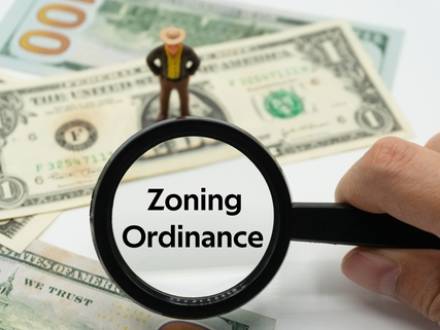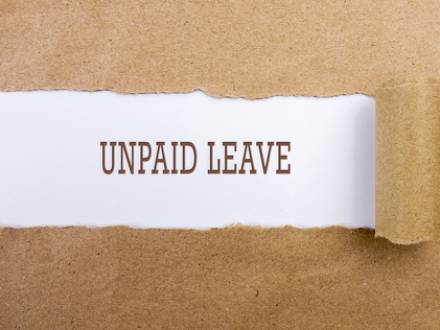Naperville, IL 60563
Recent Blog Posts
Do I Need Legal Assistance for a Leaseback Agreement?
 Buying or selling commercial property can be stressful under the best circumstances. When a business needs an influx of cash, one option may be a leaseback agreement. Unlike residential leaseback agreements, commercial leaseback agreements can be used for a long duration, allowing a business owner to continue to use the property while no longer owning it. If you believe a leaseback agreement can potentially remove some of the stress of keeping your business profitable, speak to an experienced Oak Brook, IL real estate lawyer from Lindell & Tessitore, P.C..
Buying or selling commercial property can be stressful under the best circumstances. When a business needs an influx of cash, one option may be a leaseback agreement. Unlike residential leaseback agreements, commercial leaseback agreements can be used for a long duration, allowing a business owner to continue to use the property while no longer owning it. If you believe a leaseback agreement can potentially remove some of the stress of keeping your business profitable, speak to an experienced Oak Brook, IL real estate lawyer from Lindell & Tessitore, P.C..
What Are the Basics of a Commercial Leaseback Agreement?
When real estate that is owned by the seller is sold to another person or entity and then leased back to the first owner for a long duration, this is known as a commercial leaseback agreement. Companies often use leasebacks when they need the cash invested in the property for other purposes but still need the property as an asset to operate their business.
What to Know Before Requesting a Zoning Variance
 Municipalities and counties have zoning ordinances in place that outline what kinds of property can be built in a certain neighborhood or area. Zoning laws exist to ensure that neighborhoods maintain a certain character and to prevent unseemly real estate from being built where it harms the character or living environment of a neighborhood. For example, residents of a residential area with single-family homes might not want a factory or skyscraper in their midst, and zoning ordinances are designed to prevent those types of occurrences.
Municipalities and counties have zoning ordinances in place that outline what kinds of property can be built in a certain neighborhood or area. Zoning laws exist to ensure that neighborhoods maintain a certain character and to prevent unseemly real estate from being built where it harms the character or living environment of a neighborhood. For example, residents of a residential area with single-family homes might not want a factory or skyscraper in their midst, and zoning ordinances are designed to prevent those types of occurrences.
Sometimes, however, it is possible to request a zoning variance. A zoning variance is an exception that can be requested to build property that does not fit the description in the zoning ordinances. An experienced Illinois zoning variance attorney can represent you throughout the complex process of obtaining a zoning variance.
Rent Abatement Clauses for Commercial Tenants
 Commercial leases offer significant room for negotiation between landlords and tenants. One provision that reflects this room to negotiate is the commercial rent abatement clause, an incentive sometimes negotiated by commercial tenants or offered by commercial landlords. Commercial rent abatement clauses temporarily reduce or eliminate rent payments under certain circumstances. An experienced commercial lease attorney in Naperville, IL can negotiate a commercial rent abatement.
Commercial leases offer significant room for negotiation between landlords and tenants. One provision that reflects this room to negotiate is the commercial rent abatement clause, an incentive sometimes negotiated by commercial tenants or offered by commercial landlords. Commercial rent abatement clauses temporarily reduce or eliminate rent payments under certain circumstances. An experienced commercial lease attorney in Naperville, IL can negotiate a commercial rent abatement.
What Is a Commercial Rent Abatement?
Commercial rent abatements reduce or eliminate the tenant’s obligation to pay rent for a period of time.
What Are Common Types of Commercial Rent Abatements?
Rent Abatement During Tenant Improvements
Key Buy-Sell Agreement Clauses
 As a business owner, you are focused on growing the business while juggling day-to-day operations. As you think about your long-term business goals, you should consider having in place a buy-sell agreement. It can protect your company in the event of an unforeseen circumstance. An experienced Naperville, IL business law attorney can advise you on whether your business could benefit from signing a buy-sell agreement.
As a business owner, you are focused on growing the business while juggling day-to-day operations. As you think about your long-term business goals, you should consider having in place a buy-sell agreement. It can protect your company in the event of an unforeseen circumstance. An experienced Naperville, IL business law attorney can advise you on whether your business could benefit from signing a buy-sell agreement.
What is a Buy-Sell agreement?
A buy-sell agreement is a tool of succession planning for your business — planning for what happens to your business in the event you or a co-owner either wants to exit the business or must do so due to an unforeseen circumstance such as incapacitation, death, divorce, or bankruptcy. A buy-sell agreement ensures your business survives changes in management, and it is an especially useful tool in partnerships, limited liability companies, and closely held corporations.
Terminating a Commercial Lease Early – What Every Tenant Should Know
 If your business needs have changed, you may find yourself contemplating having to terminate your commercial lease early. For example, your business might be undergoing financial difficulties, you might be rethinking your brick-and-mortar strategy, or your company might be growing and need more space. Whatever the reason, in such a case an experienced real estate attorney can advise you on your rights and obligations when terminating your commercial lease prior to the end of the contractual term.
If your business needs have changed, you may find yourself contemplating having to terminate your commercial lease early. For example, your business might be undergoing financial difficulties, you might be rethinking your brick-and-mortar strategy, or your company might be growing and need more space. Whatever the reason, in such a case an experienced real estate attorney can advise you on your rights and obligations when terminating your commercial lease prior to the end of the contractual term.
What Happens if You Terminate Your Lease Early?
To legally terminate a commercial lease early, Illinois law requires you to notify the landlord. The consequences of breaking your commercial lease early will depend on several factors, including Illinois law and the specific terms of your lease agreement. Depending on the facts of your case, you may face the following:
Construction Litigation Time Limitations In Illinois
 One of the most important considerations when deciding whether to file a lawsuit arising out of a construction project is whether the claim is time-barred, meaning that the period of time during which the claim may be brought has passed. An Illinois construction law attorney can advise you on how Illinois law addresses the time limitations for bringing construction claims. These statutes also apply to legal claims arising out of injuries related to the construction.
One of the most important considerations when deciding whether to file a lawsuit arising out of a construction project is whether the claim is time-barred, meaning that the period of time during which the claim may be brought has passed. An Illinois construction law attorney can advise you on how Illinois law addresses the time limitations for bringing construction claims. These statutes also apply to legal claims arising out of injuries related to the construction.
There are two primary laws that govern the time period for filing a construction lawsuit in Illinois: the statute of limitations and the statute of repose.
Illinois Statute of Limitations
The Illinois statute of limitations on construction projects governs the time period claimants have for filing a lawsuit. Claimants in a construction suit have four years to file the lawsuit from the time they knew or should have known of the existence of the construction claim. If claims are not filed within four years from the time the claimant knew or should have known of the construction defect, the claimant will lose the right to make that claim in a court of law.
What Are the Pros and Cons of Offering Equity to Investors?
 Securing financing is usually the biggest challenge for startups. New entrepreneurs often find themselves in a race against time, trying to obtain funding for operations, payroll, and product development before they come to a halt. Startup owners may use a number of methods to raise capital such as crowdfunding, bootstrapping from friends and family, and loans.
Securing financing is usually the biggest challenge for startups. New entrepreneurs often find themselves in a race against time, trying to obtain funding for operations, payroll, and product development before they come to a halt. Startup owners may use a number of methods to raise capital such as crowdfunding, bootstrapping from friends and family, and loans.
One of the most popular ways startups obtain financing is from investors such as venture capital firms. When investors put their money into a startup, they often want equity in exchange. Equity means the investor receives a share of the company. Depending on the investment, an investor’s equity can be quite large. This could give the investor influence in the company’s decisions.
Offering equity to investors has advantages, but it also has its drawbacks. In this article, we will explore the pros and cons of investor equity, as well as how to contact an Illinois corporate law attorney for legal guidance and protection.
How Can Easements Affect My Real Estate Investment?
 When investors purchase real estate, they focus on many important factors that affect the value of the property. Location, interest rates, appreciation potential, property type, and the real estate market as a whole are just some of the details real estate buyers study.
When investors purchase real estate, they focus on many important factors that affect the value of the property. Location, interest rates, appreciation potential, property type, and the real estate market as a whole are just some of the details real estate buyers study.
However, there is another element that often goes overlooked: easements. An easement is the legal right of someone to access a property that he or she does not own. This can affect both the value of the property and the owner’s use of it. Sellers should disclose any easements to prospective buyers, though this does not always happen. Hiring an Illinois real estate lawyer is the best way to protect your assets and interests when investing in real estate.
What Is an Easement?
An easement grants property access to someone who does not own it. One of the most common types of easements is a utility easement, which allows utility companies to build infrastructure like water pipes and telephone poles on people’s private properties as necessary.
New Paid Leave Laws in Illinois
 Every state has its own set of rules regarding employee rights and workplace benefits. Illinois recently implemented new legislation requiring mandated paid leave for workers in a wide variety of sectors. Business owners should make it a priority to be kept aware of all the implications of the new laws so that they can be sure of their own compliance. If you are an employer or employee in Illinois who might be affected by this new legislation, contact a knowledgeable Naperville, IL business law attorney who can review your situation and offer professional guidance for moving forward.
Every state has its own set of rules regarding employee rights and workplace benefits. Illinois recently implemented new legislation requiring mandated paid leave for workers in a wide variety of sectors. Business owners should make it a priority to be kept aware of all the implications of the new laws so that they can be sure of their own compliance. If you are an employer or employee in Illinois who might be affected by this new legislation, contact a knowledgeable Naperville, IL business law attorney who can review your situation and offer professional guidance for moving forward.
Illinois Paid Leave Law
Effective as of January 1, 2023, this new law requires employers to provide their employees with paid leave for several reasons, including:
- Illness
- Caregiving responsibilities
- Domestic violence situations
One of the objectives behind this law is to promote a healthier and more sustainable work-life balance, recognizing that employees can have family or personal needs that require their attention even if they still need a job for financial stability.
How Might Zoning Issues Affect My Renovation Project?
 Businesses and companies generally require space to operate out of. Similar to residential real estate, a business might find an architect and commission a new building or purchase a property that someone already used. Often, considerations including a commercial property’s specific location, already-present utilities and functionalities, and ways it could be adapted are more important to a business owner than whether the building will be brand new. After all, it is possible to renovate and make changes that are better suited to your business’s needs, right? Before making any decisions, it is crucial to speak with a qualified DuPage County, IL real estate attorney to understand how zoning issues might affect your plans for a renovation.
Businesses and companies generally require space to operate out of. Similar to residential real estate, a business might find an architect and commission a new building or purchase a property that someone already used. Often, considerations including a commercial property’s specific location, already-present utilities and functionalities, and ways it could be adapted are more important to a business owner than whether the building will be brand new. After all, it is possible to renovate and make changes that are better suited to your business’s needs, right? Before making any decisions, it is crucial to speak with a qualified DuPage County, IL real estate attorney to understand how zoning issues might affect your plans for a renovation.
Illinois Commercial Real Estate Zoning Issues
Zoning regulations dictate what different types of properties can be used for. The purpose of these regulations is to try to ensure that an area is developed in an orderly manner to the benefit of the people living and working in that area. There are several different types of zones, but the most common include:




